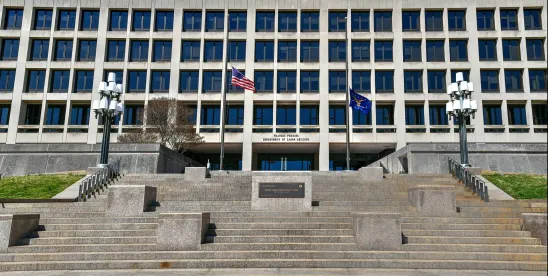Employers fearing rising labor costs can rest a little easier now after a Texas federal court struck down the U.S. Department of Labor’s (“DOL”) final rule (the “2024 Rule”), which, in July 2024, increased the minimum salary employers are required to pay employees under the executive, administrative, and professional (“EAP”), or “white collar,” exemptions to avoid paying overtime wages otherwise required by the Fair Labor Standards Act (“FLSA”), and which would have required even higher salaries to be paid starting January 1, 2025.
The FLSA exempts “any employee employed in a bona fide executive, administrative, or professional capacity” from minimum wage and overtime requirements.” 29 U.S.C. § 213(a)(1). Congress delegated to the DOL the authority to “define[] and delimit[]” the terms “bona fide,” “executive,” “administrative,” “professional,” and “capacity.” Id. To be clear, the FLSA does not expressly assign a minimum salary requirement to the EAP exemptions. However, through a series of regulations, the DOL has created a test for the EAP Exemptions that considers not only an employee’s job duties and responsibilities but also their compensation. Although the EAP exemptions primarily focus on a functional, duties-based inquiry – in other words, does the employee actually perform the sort of duties intending to meet the EAP exemptions – the DOL historically has used salary as a proxy for professional or administrative authority to ensure the EAP exemptions do not deprive low wage but loftily titled workers of overtime compensation.
The FLSA directs the DOL to revisit the EAP exemptions “from time to time by regulations of the Secretary [of Labor].” 29 U.S.C. § 213(a). Prior to the adoption of the 2024 Rule, the minimum salary threshold has been raised nine times. The 2024 Rule, however, raised the minimum salary threshold significantly. Specifically, the 2024 Rule (1) increased the salary threshold from $684 in weekly earnings to $844 effective July 1, 2024; (2) increased the weekly salary threshold to $1,128 effective January 1, 2025; and (3) included a mechanism to automatically increase the minimum salary threshold every three years based on contemporary earnings data, starting on July 1, 2027.
The substantial increase in the salary threshold led, predictably, to legal challenges. As we previously reported, the State of Texas sued to enjoin the 2024 Rule, but the judge hearing the challenge granted only limited relief. Specifically, in July 2024, the court issued a limited injunction only barring the 2024 Rule from going into effect with respect to Texas public employees. As to all other employees—private employees in Texas and public and private employees in all other states—the court did not pause implementation of the 2024 Rule.
But the same judge who issued this limited relief at the preliminary injunction stage then heard substantive challenges to the 2024 Rule and, on November 15, 2024, Judge Sean Jordan granted summary judgment for Texas and concluded the DOL exceeded its authority when it promulgated the 2024 Rule. In State of Texas v. U.S. Dept. of Labor, et al., Civil No. 4:42-CV-468-SDJ (E.D. Tex. Nov. 15, 2024), the court ruled that, in adopting the 2024 Rule, the DOL improperly displaced the duties component of the EAP exemptions with a predominantly salary-driven analysis. “[T]he EAP Exemption requires that an employee’s status turn on duties—not salary—and because the 2024 Rule’s changes make salary predominate over duties for millions of employees, the changes exceed the [DOL]’s authority to define and delimit the relevant terms.” Id. Specifically, looking at data related to both the July 2024 and January 1, 2025 salary increases, Judge Jordan determined the new minimum salary threshold requirements would “screen[] out substantial percentages of employees who meet the duties test[.]” Id. at 51. That, he explained, was administrative overreach. In addition, the court found the 2024 Rule’s automatic system of increasing the minimum salary every three years was not grounded in any changes in exempt employees’ duties, and thus further departed from the proper focus under the EAP exemptions. Id. at 51-53.
Because the DOL exceeded its authority in issuing the 2024 Rule, the Court fully vacated it, striking it down nationwide and remanding the matter to the DOL for “further consideration in light of this opinion.” Id. at 62. As a result, both the July 1, 2024 increase and the pending January 1, 2025 increase have been nullified. The minimum salary required to satisfy the EAP Exemptions, provided the duties tests are met, returns to $684/week, the threshold that had been in place prior to the 2024 Rule’s effective date. Although the DOL could appeal the decision to the Fifth Circuit Court of Appeals, the results of the recent election and anticipated changes at the DOL with the incoming presidential administration make this move unlikely.




 />i
/>i

